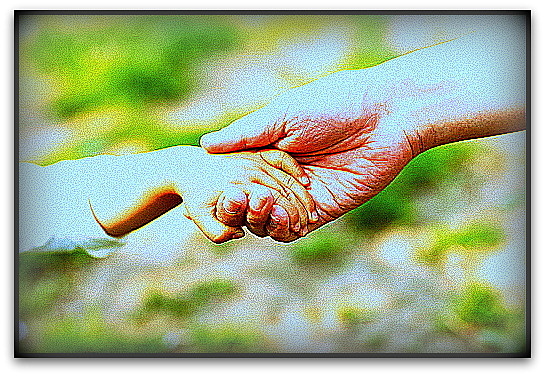There is a common thread that seems to lead us into the depths of cruelty and violence we as a nation and planet are experiencing. It is a lack of empathy.
Empathy is defined as the ability to understand and share the feelings of another.
As parents we can teach our children what we know based on what we have learned or experienced. But teaching our children how to feel empathy towards other human beings is quite another matter.
It is vital that we, as parents, attempt to educate and model to our children how to relate to, respect, and empathize with the other human beings on this earth who are going to be walking alongside them in varying degrees of relationships throughout their lives.
Our children are growing up in an amazing world filled with love, opportunity, and diversity. Unfortunately, they are also growing up in a world filled with violence, hate, and destruction. This is not a new theme. This cycle has been on repeat for quite some time and wherever our children go, whether it's to school, the mall, a movie theater, a dance club, or even their own home - the cycle of violence is likely to find them.
Our children will be affected in some way -- directly or indirectly -- by abuse, violence, and death at the hands of those who appear to be unable to love themselves or anyone else around them. This is why we parents need to start the effort of re-evaluating the in which way we think, speak, and act around our children.
A revolution of empathy needs to begin in our individual homes. The expression of compassion, acceptance, and the capability to show empathy needs to become the foundation for raising children surrounded by intolerance.
Home environments where a child can feel secure in expressing their curiosity about different races, religions, or lifestyles has to be created and secured. It's a process which can have everlasting, positive effects on the generations to come.
A child should be able to have their questions about different cultures and lifestyles answered in a manner that does not include disgust, rejection, or tones of absolute judgement. This is where it all begins. In the home. The seeds of empathy for other human beings are planted in the living rooms, bedrooms, and kitchens across this nation and world.
It's not enough that we say, "Be kind to everyone and don't bully." We as parents need to show our children what it means to accept others. We also need to teach children how to appropriately digest and productively disagree with those we have issues with, instead of rushing to insult or even physically harm them.
It begins when you comment on current events on the nightly news in front of your children. It begins when a relative or family friend has a different opinion at a party or family function. Our children are watching how we respond to things that are awkward or foreign to us. There is a distinct difference between "speaking your mind" and being unnecessarily disrespectful to other people.
There is absolutely nothing Donald Trump, Hillary Clinton, or even Bernie Sanders can do that will encourage our children to become empathetic, thinking, active citizens. That job starts with us.
Any parent who thinks that gun violence, homophobia, or racism won't affect them should think again. It affects our neighbors, our friends, our children's friends, families of people we know, and so on.
Unfortunately we often don't care about specific issues until they impact us personally or affect someone we know. Many times, those who thought they felt a certain way will change their perspective once violence kills a person they love, or harms an innocent child.
When a parent has the ability to put themselves into the shoes of another and tries to understand how they live and feel, this gift of empathy is more likely to be passed on to their children and the generations that follow.
Intolerance, violence, and malicious intent are often cultivated in the most innocent of citizens in this world by their parents. It is a learned behavior. Children mimic their parents.
Of course, we cannot hold parents accountable for everything their children say and do - but there's no getting out of the fact that parents are a powerful influence on the children they raise.
There will always be exceptions where some people are born with brains that aren't wired for compassion or empathy, but we must accept there are things we simply cannot control and focus on the things we can be pro-active about.
Our children -- whom many of us claim are our most valuable asset for the future of this world -- are waiting for us to teach them with open ears and a potentially unlimited vision for us as a human race.
This is on our watch.
More from Michelle in Parenting - To the Dads Who are Supermen - I see You
More in Politics - Why Donald Trump's Hate Campaign Could be Exactly What America Needs
Originally a Vancouver Island native, Michelle now resides in California where she is an ex-corporate slave, writer, artist, mother, stepmother, & wife.
Join Michelle as she explores & stumbles through society, parenting, step-parenting, health, beauty, relationships & much more.
Catch more at The Pondering Nook and The Pondering Nook's Facebook page.
